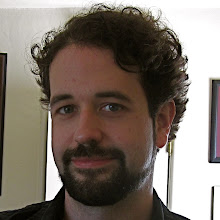One area where I've been doing a lot of thinking lately is the issue of equity, both in society and in the classroom. I've recently come to the realization that, while I believe in working for a just, egalitarian society, my subconscious cultural programming has often acted in ways that are contrary to those beliefs.
In her book, "Other People's Children", educator Lisa Delpit points out that many instructors who try to engage students in high-level, process-oriented learning experiences often just end up giving students the opportunity to demonstrate the skills they already had. The skills that are needed aren't actually taught, in many cases: they're assumed to be present, and so the material is presented too quickly and with inadequate scaffolding for students who haven't received this a priori training. Often, that training is part of the majority white middle-class culture, but is not present in the cultures of minority or lower-income students. Students are judged according to a set of rules of which they haven't been made aware, which leads to them feeling cheated and alienates them from the experience of education.
Delpit writes extensively about the existence of a "culture of power" and the need for minority and lower-income students to be taught the skills and conventions of that culture, so that they will then be able to succeed in participating in the exercise of power (and hopefully, eventually, in its more equitable distribution). Unfortunately, white liberal educators who are trying to promote a "progressive" education often fail to convey exactly the key underlying skills necessary for these students to be successful. With the very best intentions, they end up recreating the social inequities of the past.
Reading this article was an eye-opening experience for me. When I started teaching, I assumed that the cultural differences between myself and non-white teachers were primarily stylistic, and that students could essentially be taught with the same techniques regardless of where they came from (excepting the occasional student who was a recent immigrant and needed additional language support). I did some things right -- having students work in small groups, building increasing responsibility for projects later in the term, and using varied instructional/learning activities -- but I was repeatedly frustrated with the poor performance on quizzes and tests, as well as an apparent inability to transfer ideas studied in one project into a new-but-analogous situation on another project.
I eventually identified one part of the problem: the assessments I used were language-intensive, and I simply wasn't giving the students enough opportunities to work with the vocabulary. I then consciously worked to integrate vocabulary and literacy practice into the last unit of the course, which helped to improve student performance. Still, they hadn't reached the level I had hoped for them to reach, and some of their final projects were disappointing to me in how little research the kids had done.
Delpit's book, and a visit to two successful "pilot schools" in Boston, helped me realize another component of the problem: literacy skills weren't the only skills I'd been failing to teach them. The work that I wanted my students to do in their final biology project required extensive research and analysis of sources; while I tried to scaffold the project while they were doing it, breaking the research into digestible chunks, I hadn't built in a training for "Informational Literacy" -- the skill set of recognizing useful sources of information and cleaning relevant data from them. I also hadn't done enough explicit training on critical thinking or (as a subset thereof) problem-solving strategies. In retrospect, this explains why so many of my students didn't even try to answer the high-scoring essay questions at the ends of my exams: I hadn't taught them the skills to even know where to begin.
I wish that I could say that these problems were limited to my first semester teaching biology, but a near-revolt among my 10th-grade physics class showed that I had committed the same mistakes and oversights with them. The homework assignments that I gave them required a practiced familiarity with several key principles of algebra, which our sophomores hadn't studied since last spring. Furthermore, because physics problems are invariably word problems, they had the added challenge of extracting meaning from the question, identifying the variables, plugging the variables into the correct equations, and then figuring out how to solve them using those rusty algebra skills. In retrospect, it's no surprise that so many of my students either left several questions blank or failed to turn in their homework at all.
So, now we're starting over from square one. I can't go back and fix what I did with the biology students, but I can at least focus on teaching my physics students the relevant skills they will need -- both for this class and for life in general. My current areas of emphasis are:
1.) Continued vocabulary training so that students can become familiar with the language of science.
2.) Teaching critical thinking skills. When people use their minds well, how do they approach problems?
3.) Building in refreshers for rusty math skills and explicit instruction (and practice) in the procedural skills necessary to do work in science -- whether that means dissecting a word problem or making measurements in the lab.
4.) Finding culturally-relevant examples of the ideas that we talk about in class. This may be the hardest part, but I have some ideas involving both cars and skateboarders...
Subscribe to:
Post Comments (Atom)

No comments:
Post a Comment